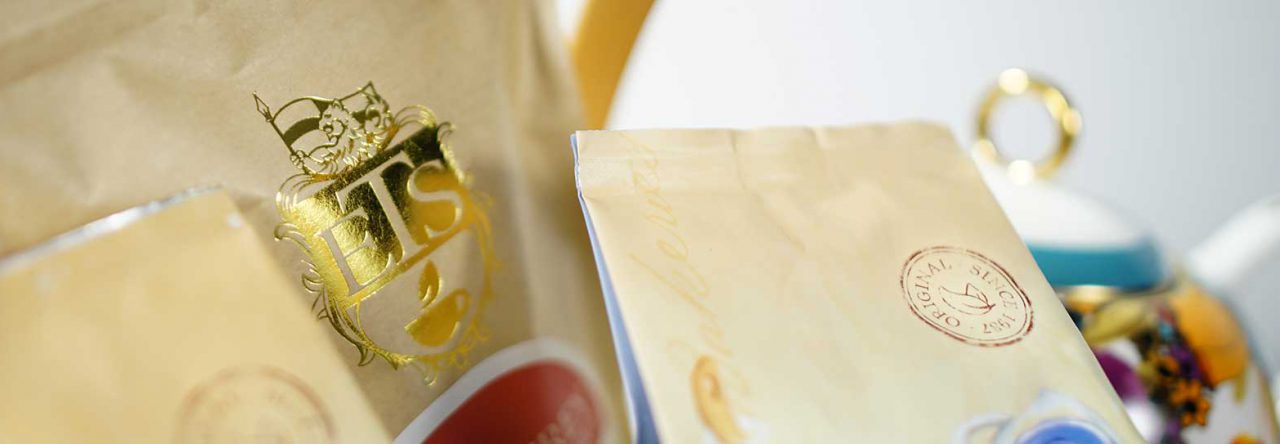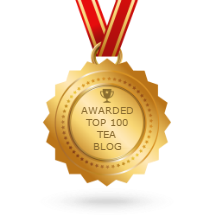When you see the words “Tea Company” in a company’s name, you naturally assume that they primarily sell tea. Right? Well, it turns out that they may have started that way but quickly expanded to other foods, beverages, etc. In fact, a couple of them grew into nationwide chains.
The Great Atlantic & Pacific Tea Company, Inc. (A&P)

Founded in 1859 under the name The Great American Tea Company, the company established a small chain of retail tea and coffee stores in New York City and a national mail order business that dealt in tea and spices. The firm was able to offer low prices by acting as both the wholesaler and retailer. The tea was marketed under their brand name “Our Own.” (Sadly, what kind of tea it was has been lost to the annals of time.)
Ten years later they changed the company name to The Great Atlantic & Pacific Tea Company, Inc. (often shortened to A&P) to promote the then-new concept of prepackaged tea under the Thea-Nector brand. The tea company continued to use the Great American name for mail-order purposes.
By this time more food products had been added to the line-up, including their own brand of baking powder (the first of many private label products to come), and fruit and seafood that were transported to market on a new-fangled invention (refrigerated railroad cars). In 1880 due to increased tariffs imposed on tea by the U.S. Congress (rather ironic in light of the Boston Tea Party, a protestation of tariffs on tea), the company was not able to make a profit on tea and had to add other products such as sugar to make up for that.
By 1881, the company had grown to a chain of over a hundred grocery stores but maintained delivery routes numbering around 5,000. This was the day and age when stores routinely delivered grocery orders to customers’ homes. Coffee was added to their private label collection, being preferred over the tea they carried. In the 1890s, the company adopted a customer-loyalty program, offering premiums and savings coupons (like the frequent flyer miles airlines now offer). By 1941, their coffee brand (Eight O’Clock Coffee) was the best-selling coffee worldwide, meaning that they were technically no longer really a tea company. Let’s face it, when compared with tea companies today, they were rather limp. Today, they no longer have that coffee brand, having sold it off as part of a company restructuring, and operate 320 stores nationwide.
So much for being a tea company.
The Jewel Tea Company

A man, a horse, a wagon, and $700 began a new tea company in 1889. The existing tea companies, of which there were many, sold door-to-door, giving premium coupons with purchases of tea and other groceries. When enough coupons had been saved, the customer had a choice of premium items offered.
The teas I could find online were Jewel Tea Extra Fancy Darjeeling Blend, Jewel Tea Orange Spice Tea, Jewel Tea English Breakfast Tea, and the Jewel Tea Treasure Chest 150 Tea Bag Container. The tea bags were “Famous for delightful flavor.”
The premium items have become true collectibles. Mostly, they are the Autumn Leaf pattern made by the Hall China Company. That pattern was made exclusive to Jewel Tea in 1933. A whole line of dinnerware was made, including items suitable for a proper tea time: 2-tiered tidbit tray, teapots, teacups and saucers, cream and sugar, and snack plates.
Their evolution into a grocery store chain instead of a tea company began with the acquisition in 1932 of Loblaw Groceries which they renamed to Jewel Food Stores. Two years later Jewel Tea and Jewel Foods merged, keeping the Jewel Tea Company name. In 1957 they bought Eisner Food Stores in Illinois but didn’t change the name until 1981. A further stage of the evolution was the acquisition of Osco Drug in 1961, accompanied by a name change to Jewel-Osco. Further purchases of grocery and convenience stores sealed the deal, leaving those tea company roots far behind.
One More Thing
It seems that tea is the start of great things here. From tiny acorns mighty oaks do grow. And since both companies have dropped “Tea” from the company name, consumers won’t be seeking them out for a supply from which to steep their daily cuppa. Phew!
See more of A.C. Cargill’s articles here.
© Online Stores, Inc., and The English Tea Store Blog, 2009-2014. Unauthorized use and/or duplication of this material without express and written permission from this article’s author and/or the blog’s owner is strictly prohibited. Excerpts and links may be used, provided that full and clear credit is given to Online Stores, Inc., and The English Tea Store Blog with appropriate and specific direction to the original content.



Leave a comment